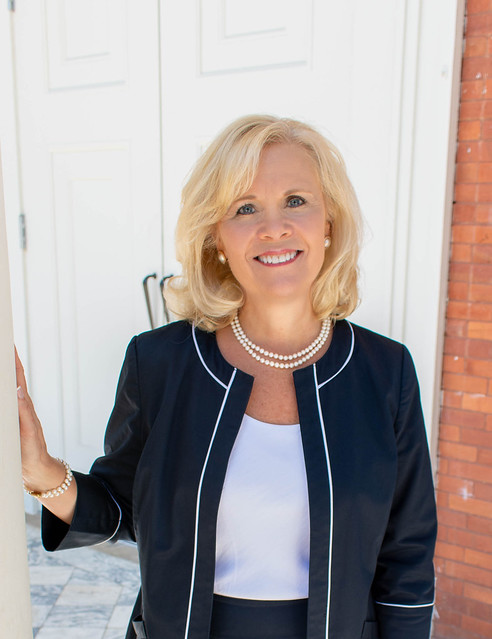Hubbard named dean of Auburn University’s College of Human Sciences
Article body
Following a national search, Susan Hubbard has been named the next dean of Auburn University’s College of Human Sciences, effective July 1.
A member of the college’s faculty since 1993, Hubbard is currently the college’s associate dean for academic affairs, a position she has held since 2006. She holds the rank of full professor and previously served the college in numerous administrative and academic capacities, including coordinator of the college’s Hotel and Restaurant Management Program, extension coordinator and external affairs coordinator. Hubbard will succeed Dean June Henton, who is retiring after more than three decades of leadership in the college.
As dean, Hubbard will provide strategic leadership to a growing college with more than 1,400 students and 100 faculty and staff members across three academic departments and numerous centers and institutes. Supporting the college’s mission of developing science-based solutions to address society’s most pressing issues, Hubbard will continue to develop the college’s academic offerings, introduce new resources and programs, recruit new faculty, support strong research productivity, increase donor engagement and enhance facilities.
“Susan’s depth of experience and understanding of the college’s role in advancing global solutions are vital as it enters a new era,” said Provost and Senior Vice President for Academic Affairs Bill Hardgrave. “I am excited about the future of the college under her leadership.”
Hubbard brings considerable experience building academic partnerships and promoting instructional, research and outreach activities that have strengthened the college’s culture of engagement. In alignment with the university’s goal to develop professionally competent and socially aware graduates, Hubbard has helped forge industry partnerships, expand the college’s distance education programs and strengthen student services.
“It is an honor to be provided the opportunity to lead the College of Human Sciences at Auburn University,” Hubbard said. “The momentum of this college is strong and I am committed to building upon our remarkable 100-year history and impressive successes.”
Working with stakeholders, Hubbard will continue to promote the college’s nationally and internationally ranked programs, which are frequently recognized for combining advanced theory with global understanding and professional experience. Her appointment comes at a crucial time, as the college prepares to launch several new initiatives to strengthen its role as an academic leader in Alabama’s burgeoning hospitality and tourism industries, key contributors to the state’s economy.
“I am extremely fortunate to have worked with and learned from Dean June Henton for over two decades and appreciate the tremendous leadership and vision she has provided,” continued Hubbard. “I look forward to working with the outstanding faculty, staff and students in the College of Human Sciences. I pledge to empower every area to continue to be innovative and cutting-edge in our commitment to develop superior student learning experiences and improve upon our nationally-ranked programs, strong student graduation rates and our status as a top research unit on campus.”
In recent years, Hubbard has been recognized for her work as an administrator and advocate. Among her many accolades, she has received the National Outstanding Advising Administrator Award from the National Academic Advising Association, or NACADA, the Pamela Wells Sheffield Award recognizing commitment and service to Auburn, the Outstanding Advising Administrator Award and the Hospitality Educator of the Year Award from the Alabama Restaurant Association and Alabama Hospitality Association.
An Auburn alumna, Hubbard earned her bachelor’s and master’s degrees from the College of Education and her doctorate in vocational and adult education with an emphasis in higher education administration.
Related Media
Media interested in this story can contact Communications Director Preston Sparks at (334) 844-9999 or preston.sparks@auburn.edu.
Auburn University is a nationally ranked land grant institution recognized for its commitment to world-class scholarship, interdisciplinary research with an elite, top-tier Carnegie R1 classification, life-changing outreach with Carnegie’s Community Engagement designation and an undergraduate education experience second to none. Auburn is home to more than 30,000 students, and its faculty and research partners collaborate to develop and deliver meaningful scholarship, science and technology-based advancements that meet pressing regional, national and global needs. Auburn’s commitment to active student engagement, professional success and public/private partnership drives a growing reputation for outreach and extension that delivers broad economic, health and societal impact.





